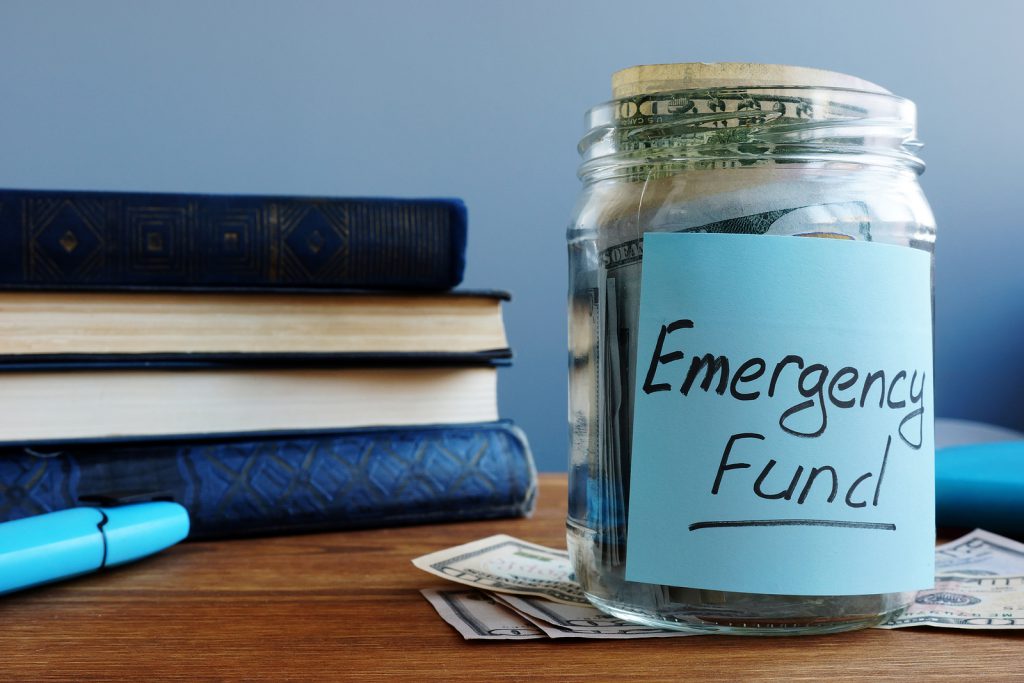
It may feel like a downer to drain some of that emergency fund you worked so hard to save up, but that’s exactly why it’s there. Being able to tap into this money when you needed it most shows you’ve been responsible and self-reliant thus far. After all, that cash wasn’t meant to sit there forever. You needed it, and you used it.
Now that you’re back on your feet —or getting there— what happens next? Every financial expert talks a big game about the importance of having an emergency fund, but what if you use it up and you’re back to square one? After all, you’re an adult with bills and expenses who can’t just dump your whole paycheck into your savings account.
For the most part, rebuilding an emergency fund happens slowly, just like it did the first time around. There are plenty of little things you can do to help you get back to where you were. It may take hard work, but it’s worth it for the security you’ll get in return.
1. Lay Out a New Budget
During your rough patch, you probably laid out a budget to make your money stretch, and while things are probably still tight, a new budget is in order yet again.
Whether you lost a job and found another or dealt with a large one-time expense that took a chunk out of your savings, moving past that situation gives you new parameters. You perhaps have a more steady income again, but you also have new savings goals.
Make saving a part of your budget, even automating payments like a regular bill to keep things constant. When you reach your goals, you can establish a new spending plan.
2. Find a Side Hustle
If your income still isn’t what it used to be, adding another stream of money into your bank account might be in order. It can be permanent, but it doesn’t have to be. Finding a side hustle can be a quick way to grow your savings, and it can give you a little extra pocket change when you reach those goals.
Some people choose to create their own side venture based on a hobby or craft. Others take up babysitting, dog-walking or other services in their free time. There are even plenty of work-from-home options that can make you some extra cash. It’s worth looking into these options to see if they’re a viable way to boost your financial recovery.
3. Cut Little Luxuries — for Now
Giving up on a weekly meal out or an entertainment subscription for a while might make you a little sad, but the reality is that a quick cleanse can help you reach your goals a bit faster.
However, asking people to give up the few remaining treats and sources of joy to save just a few dollars can sometimes do more harm than good. If this seems too tough to manage, you can always cut back without cutting everything out.
It’s most important to evaluate your priorities and keep the things that genuinely make you happy while reducing superfluous expenses. Choose one subscription to your most-watched streaming service rather than canceling them altogether. Get yourself a few new coffee flavors for home rather than going out for your caffeine pick-me-up. It’s all about balance.
4. Put Off Larger Financial Goals
It can be tough to hold off on saving for that down payment on a house or paying off your student loans in full. Those are important goals, and getting them done can feel like the most responsible thing to do. However, your safety net needs to come first — you’ve proven already that you need it, so you know its value.
That doesn’t mean your big goals won’t happen. You just need to be patient and save. Once you reach your target goal for rebuilding your emergency fund, you can refocus your efforts on other long-term goals.
5. Reassess Regularly
Even when you’re not bouncing back from tough times, it can be a great idea to look at your budget at the end of each month to see how you could adjust and plan for the future. As you get closer to your savings goals, you can take a look at your budget and see where you may have room to save a little more or even relax a bit based on your needs and goals.
Who knows? You may get your emergency fund back quicker than you realized. At worst, you can head off bad habits before they make your planning harder over time.
Rebuild Your Savings for Peace of Mind
Everyone’s budget is different, but if one thing’s for sure, it’s that your emergency fund isn’t the place to skimp. When you’re responsible with your finances, your cushion can catch you so you can bounce back strong and build another one in case you need it.

